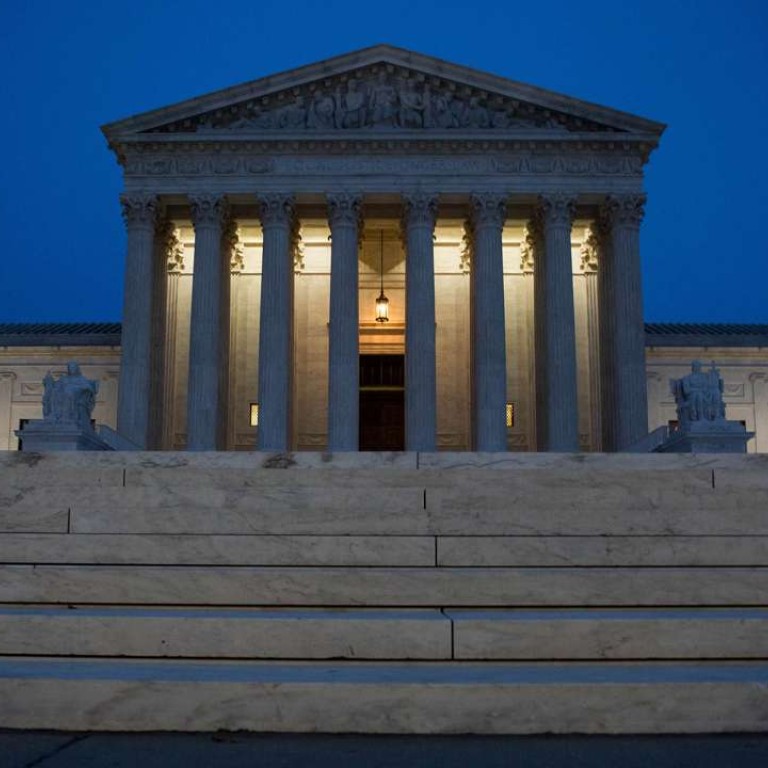
Guns and religion get special mention as Trump’s team sketches vision for US Supreme Court
Statement says appointments will go to judges who favour ‘originalist’ interpretation of the US Constitution, favoured by late conservative justice Antonin Scalia
Gun rights, religious freedom and states’ rights were worth a mention when US President-elect Donald Trump’s team laid out his vision of the Constitution - and the Supreme Court that interprets it.
Equal protection and due process of law, not so much.
In the most detailed description yet of what Trump will seek when he selects Supreme Court justices and other federal judges, his transition team this week posted a two-paragraph statement that could double as a conservative wish list.

The web page makes no mention of the list of 21 people that Trump has said will be his exclusive source for Supreme Court nominations. But it singles out the constitutional provisions that are longtime favourites of legal conservatives.
“He will defend Americans’ fundamental rights to free speech, religious liberty, keeping and bearing arms, and all other rights guaranteed to them in the Bill of Rights and other constitutional provisions,” the statement says. “This includes the Tenth Amendment guarantee that many areas of governance are left to the people and the States, and are not the role of the federal government to fulfil.”
Left unmentioned - at least specifically - are the parts of the Constitution that liberal judges and advocates traditionally prefer. Among those is the equal protection clause, which underlay the landmark 1954 Brown v. Board of Education ruling. The statement also doesn’t mention the due process clause, which the Supreme Court invoked along with equal protection in legalising same-sex marriage last year.
The statement also makes no explicit mention of the Fourth Amendment right against unreasonable searches and seizures. Trump has called for an expansion of stop-and-frisk policing, a practice a federal judge said was unconstitutional in New York.
Conservatives have long criticised liberal justices for going beyond the specific words of the Constitution, most notably in the 1973 Roe v Wade ruling that legalised abortion nationwide. The decision relied on the “right of privacy,” a phrase that doesn’t explicitly appear in the Constitution. Trump said during the campaign that he would appoint justices who would overturn Roe.
Scalia’s death left the Supreme Court with only one justice, Clarence Thomas, who consistently adheres to what he sees as the original understanding of the Constitution’s provisions. The other three Republican-appointed justices - Chief Justice John Roberts and Justices Samuel Alito and Anthony Kennedy - tend to consider the original meaning alongside other factors, such as how the court has interpreted a provision over time.
The statement says Trump is committed to “nominating judges and Supreme Court justices who are committed to interpreting the Constitution and laws according to their original public meaning.”

